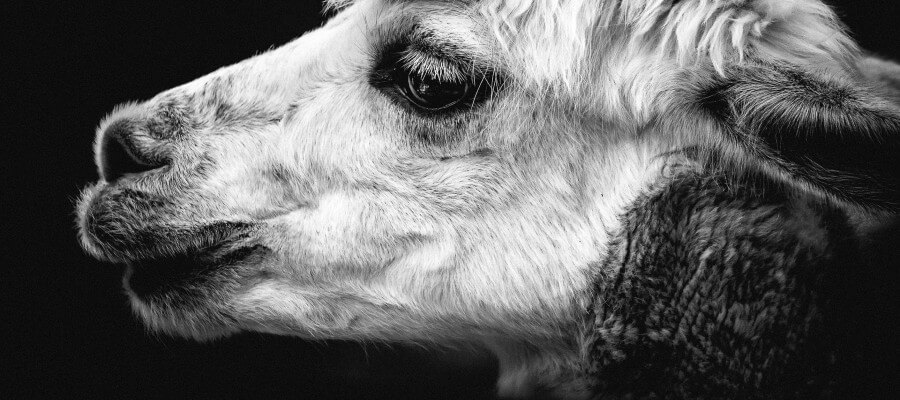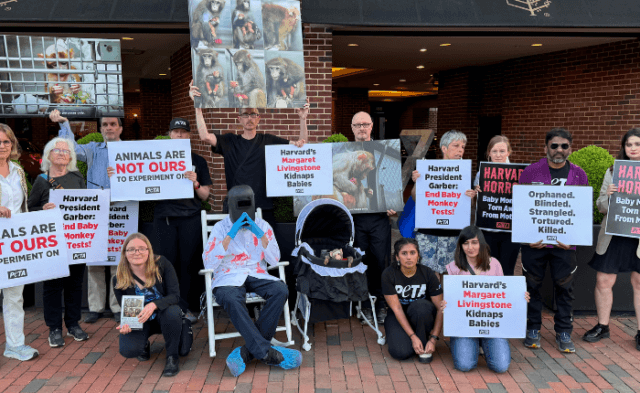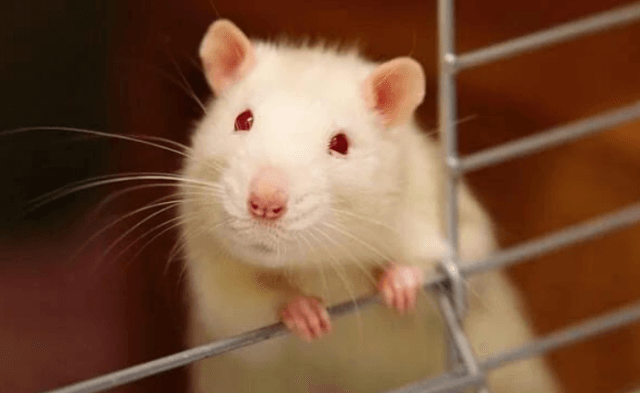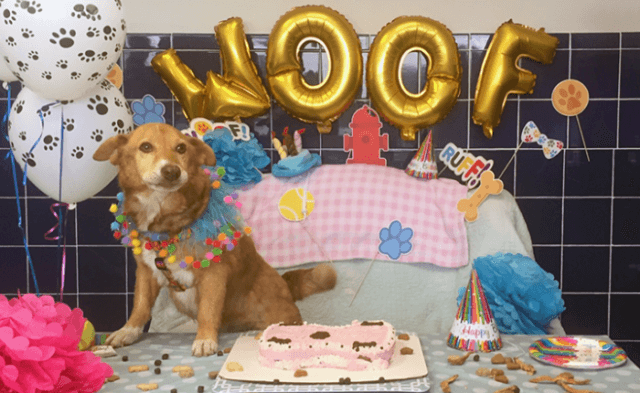Fresh out of art school, I was fortunate enough to land a dream job for any new graduate with a sculpture and textile degree: I was hired by Anthropologie as a display coordinator, and I spent my workdays curating and crafting compelling art installations in the chain’s storefront windows and retail spaces that would draw in customers who admired the unique and playful shopping environment, which was designed to help increase sales.
It was an immensely inspiring job for an artist. Yet as an ethical vegan, I felt extremely conflicted about Anthropologie’s sales of animal-derived materials, such as alpaca wool, leather, silk, and sheep’s wool, and some of these are even used in the art installations that employees make around the world.
So I left Anthropologie and joined PETA. As PETA’s Clothing Campaign coordinator, I now work on public campaigns to persuade retail companies to make compassionate — and business-savvy — decisions to ban animal-derived materials and embrace superior vegan options that are far better for animals and the planet. And that’s why I’m now urging my former employer to ditch alpaca wool.
You may not have thought about this fiber before, but a disturbing, first-of-its-kind PETA undercover investigation in Peru — the leading exporter of alpaca wool — revealed heartbreaking cruelty, including that workers tied down and cut up animals, causing them to vomit in fear. The groundbreaking footage highlights just some of the abuse documented at the world’s largest privately owned alpaca farm, Mallkini. Its parent company, the Michell Group, is an Anthropologie supplier.
PETA documented that workers pulled alpacas up off the floor by the tail and violently yanked them around, likely causing fractures and severe, permanent nerve damage. They slammed pregnant alpacas onto tables, strapped them tightly by the legs into a restraining device resembling a medieval torture rack and forcibly stretched them out, nearly wrenching their legs out of their sockets.
Restraint is highly distressing to alpacas, who are prey animals and fear that they are about to be killed. Terrified of being pinned down and totally defenseless, the alpacas cried out, spit, and vomited in fear as workers grabbed them by the ears. Afterward, workers threw them to the concrete floor and even stood on their necks.
Shearers worked quickly and carelessly, leaving alpacas bleeding from deep, painful wounds. They crudely stitched up the most gaping wounds with a needle and thread. Once they’re no longer wanted for their coats, many alpacas are slaughtered for food.
Alpaca wool production is not just cruel to animals; it also has a surprisingly large environmental footprint. The Higg Materials Sustainability Index ranks alpaca wool as the second most environmentally damaging material — and notes that it’s six times as harmful as polyester! But companies don’t have to choose between supporting industries that abuse animals and using petroleum-based products — as some industry P.R. people claim. Natural, vegan options, such as bamboo, Tencel, hemp, organic cotton, and modal, are readily available, and many more are in development.
And fortunately, more and more companies are embracing these superior options. They know that ethics and sustainability are increasingly important factors to consumers, who are more aware than ever before of the damaging environmental impact and cruelty inherent in industries that exploit animals. It’s clear that the fashion industry is shifting toward animal-free styles in response to consumer demand. Following talks with PETA, Esprit, UNIQLO, and Marks & Spencer are phasing out alpaca wool and, as a first step, Gap Inc. (which owns Banana Republic, Athleta, and other brands) and H&M Group (which owns eight brands) have cut ties with the Michell Group. More companies are sure to follow.
But despite knowing about the violence and suffering that alpacas endure, Anthropologie continues to sell clothing made of alpaca wool. The company already offers soft and stylish vegan knitwear and clearly sees the value in taking animals out of fashion, as it has previously banned mohair and angora after hearing from PETA. Banning alpaca wool should be an easy decision for Anthropologie.
And here, dear reader, is where you come in. Please take a moment to sign PETA’s appeal to Anthropologie urging it to stop selling products made of alpaca wool. And remember that the best way to help animals abused by the clothing industry is to refuse to buy anything made from their skins or fleece and choose stylish, sustainable vegan options instead.
Sienna Martz is a fiber artist and the Clothing Campaign coordinator for PETA.





